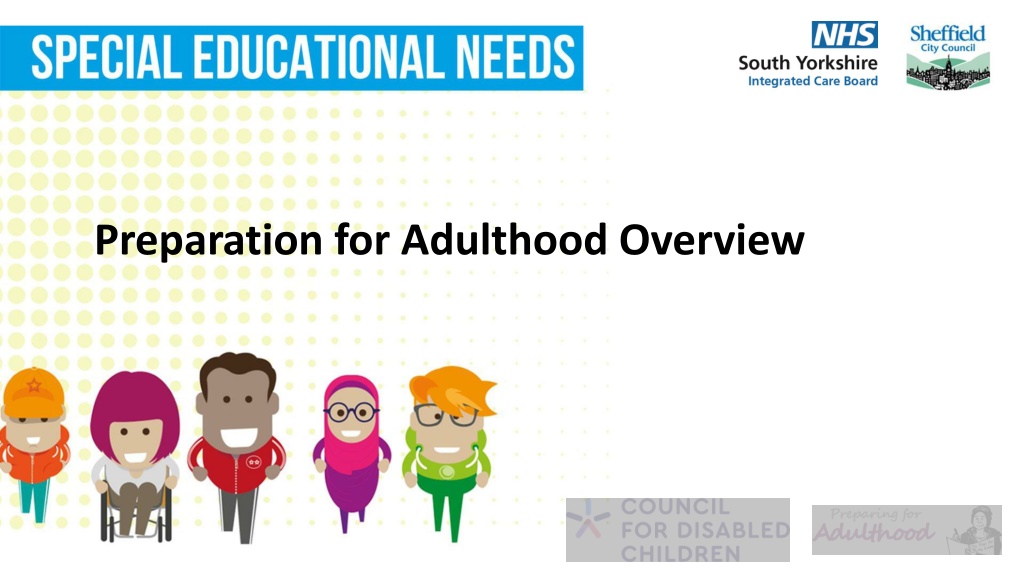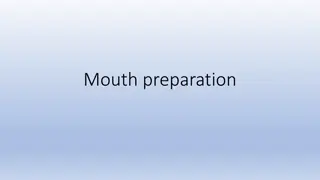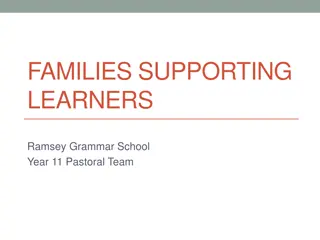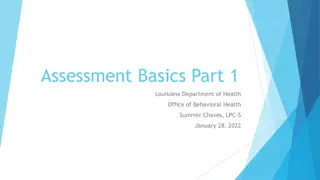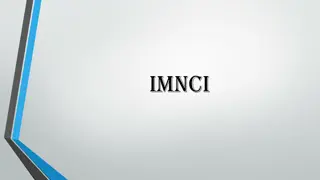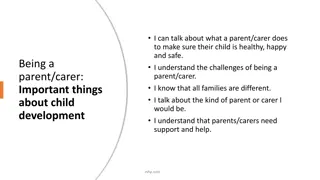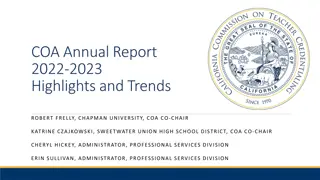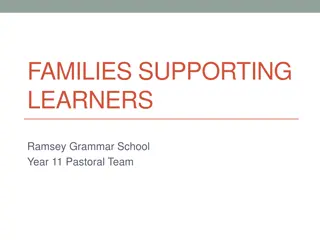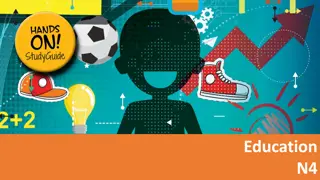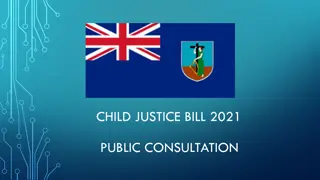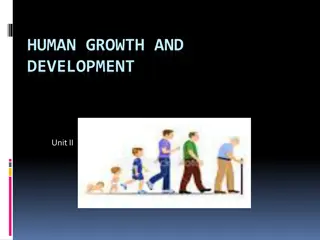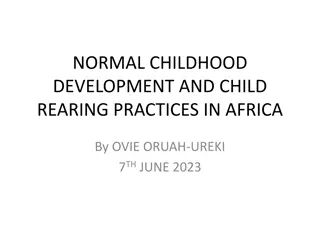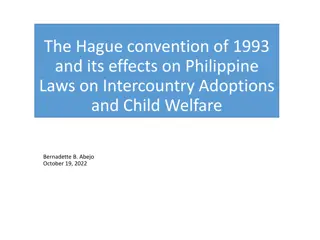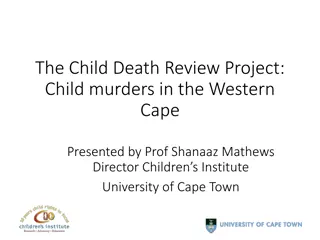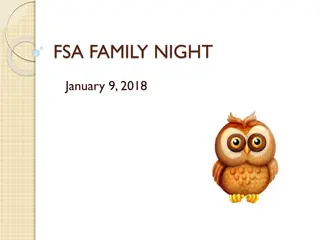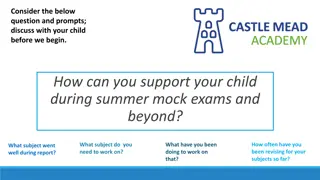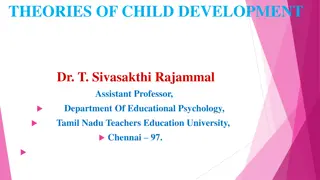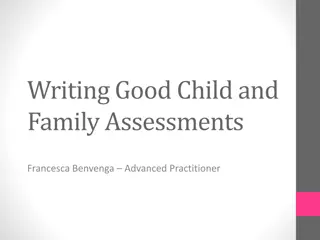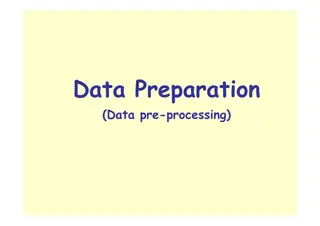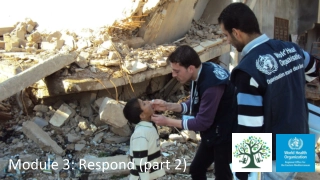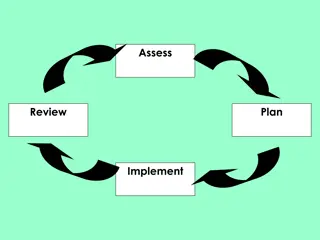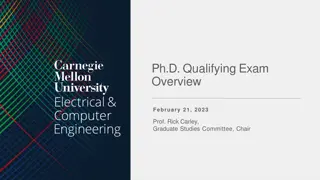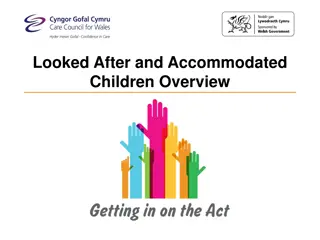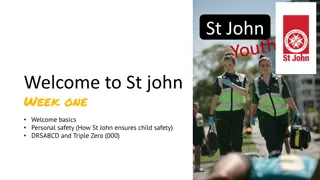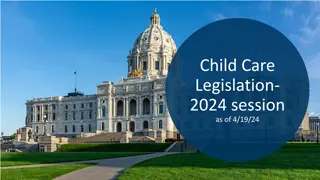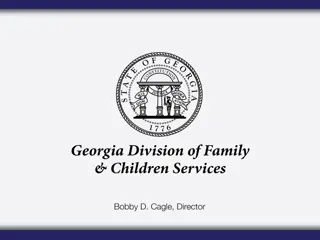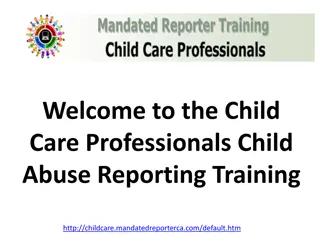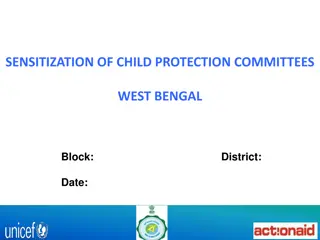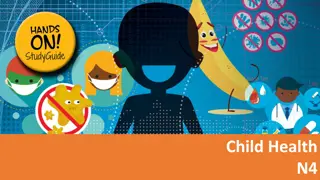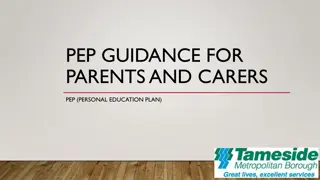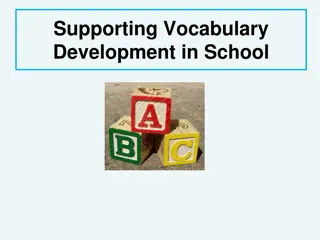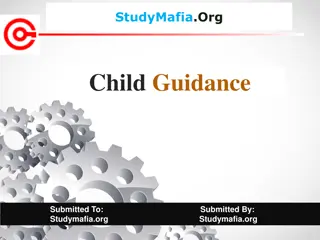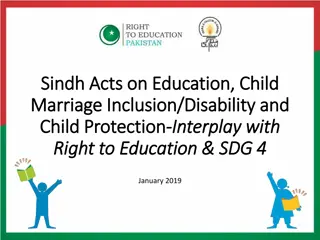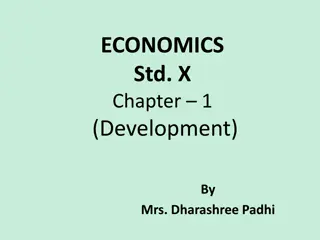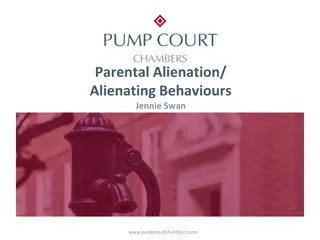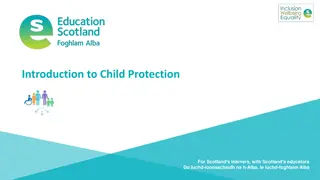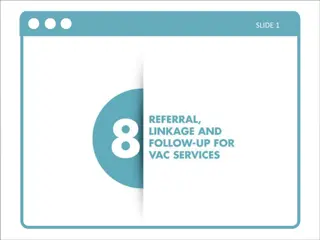Key Aspects of Preparation for Adulthood in Child Development
Preparation for Adulthood (PfA) is crucial for children and young people, covering areas like education, independence, community, and health. Decision-making should prioritize the young person's voice and mental capacity. Understanding Children's Human Rights is also vital for ensuring their well-being. Education, training, and employment play a significant role in PfA, as evidenced by recent audits of EHC plans.
Download Presentation

Please find below an Image/Link to download the presentation.
The content on the website is provided AS IS for your information and personal use only. It may not be sold, licensed, or shared on other websites without obtaining consent from the author. Download presentation by click this link. If you encounter any issues during the download, it is possible that the publisher has removed the file from their server.
E N D
Presentation Transcript
What is Preparation for Adulthood (PfA) Preparation for Adulthood is an umbrella term used to describe areas to be discussed in relation to children and young people from early years and as they grow older. There are 4 areas of PfA, these are: 1. Education, Training and Employment 2. Independence 3. Community and Friendships 4. Health Preparation for adulthood discussions should happen from the earliest opportunity, (SEND code of Practice 8.5&8.6) and MUST happen from Year 9 onwards for children with Education, Health and Care Plans. (SEND code of Practice 8.7 onwards)
Decision making the young person at the centre Preparing any child or young person for adult life must start with hearing what is important to them, what they want and understanding what is important for them, what they need. The voice of the child must be central to all decisions and support as it is their life and future. From year 9 at the latest, young people must be involved in their reviews and planning for their future, where possible, they may wish to co-lead their meetings. Young people should be supported by parents, carers and involved professionals to understand the options available to them but it is the young person who gets to make the decision.
Mental Capacity Act All young people should be empowered to make their own decisions. Some young people may not have the capacity to understand all the decisions they need to make in life. The mental capacity act ensures that those who lack capacity are empowered to make as many decisions for themselves as possible and that any decision made or action taken on their behalf is done so in their best interests. Decisions about mental capacity are made on an individual basis following formal assessment, and may vary according to the nature of the decision. Someone who may lack capacity to make a decision in one area of their life may be able to do so in another. We assume that a young person has capacity to make their own decisions unless they are assessed as being unable to make that particular decision. Mental Capacity Act 2005 (legislation.gov.uk)
Childrens Human Rights The Convention on the Rights of the Child has 54 articles (parts), and most of these articles list a different right that children have, and different responsibilities that the Government, and others, have to make sure that children have these rights. These articles, include areas (but not limited to) such as a child s best interests, equality, identity, family, their opinion being heard, freedom of expression, protections, health, education, standard of living and more. The following link provides easy to read sections of children s rights: What are children s rights? lawstuff.org.uk
1. Education Training and employment Audits of EHC Plans and reviews in 2022 show that of the 4 areas of PFA this is the most covered area for children and young people. SEND Code of Practice: Support to prepare for higher education and/or employment. This should include identifying appropriate post-16 pathways that will lead to these outcomes. Training options such as supported internships, apprenticeships and traineeships should be discussed, or support for setting up your own business. The review should also cover support in finding a job, and learning how to do a job (for example, through work experience opportunities or the use of job coaches) and help in understanding any welfare benefits that might be available when in work
1. Education, Training and Employment Ideas for questions to consider when working with young people: Is there a summary of what s important for the young person in work attached to the education, health and care plan? Work includes paid work and meaningful daily activity Is there a clear education pathway to enable the young person to reach their intended outcomes in employment and adult life? Has the current or proposed study programme been adapted so that the young person has all the skills needed to access the work place, including developing their independence? Has the young person received careers information, advice and guidance in the last year? Has that advice focused on employment and not only post-16 education options? Has advice included a focus on any welfare benefits that might be available? In the last year, have work tasters and /or work placements been offered in line with the young person s interests and skills? What was the outcome of these? Aspirations will be included in Section A of a Young Person s EHC plan. How does your support and advice enable a young person to achieve their education, training and employment aspirations?
2. Independence Audit findings show this was the second most discussed area for a child or young person, but was limited to Travel, which although fits with independence, in the SEND CoP is under community. SEND Code of Practice: Support to prepare for independent living, including exploring what decisions young people want to take for themselves and planning their role in decision making as they become older. This should also include discussing where the child or young person wants to live in the future, who do they want to live with and what support they will need. Local housing options, support in finding accommodation, housing benefits and social care support should be explained
2. Independence Ideas for questions to consider when working with young people: Has the young person been asked about where they want to live in future, with whom and what support they will need? Does the young person and / or their parent/carers have a view on what should ideally happen and by what age? E.g. what are the parents /carers expectations for the young person post 18? Has the family been given information on support around housing including how to get onto the housing register? Is the young person learning skills at home and at school/college that will help with living independently such as managing money, appointments, travel, their diet and personal care? Aspirations will be included in Section A of a Young Person s EHC plan, their needs will be in Section B. How does your support and advice enable a young person achieve their independence aspirations?
3. Community and Friendships This was covered in 60 / 168 audits completed SEND Code of Practice: Support in participating in society, including understanding mobility and transport support, and how to find out about social and community activities, and opportunities for engagement in local decision-making. This also includes support in developing and maintaining friendships and relationships
3. Community and Friendships Ideas for questions to consider when working with young people: Does the young person have a circle of friends inside and outside of school/college? Is it clear what is being done to support the young person s friendships inside and outside of school/college? Have options for more community activities been explored and followed up? Are there any ways that the young person can contribute to their community and become better known? E.g. volunteering opportunities What support for their needs is available within their community eg through voluntary groups, friendships and local community activities? Aspirations will be included in Section A of a Young Person s EHC plan, their needs will be in Section B. How does your support and advice enable a young person to achieve their community and friendship aspirations?
4. Health This was the least covered areas in the audit completed of EHC Plans SEND Code of Practice: Support in maintaining good health in adult life, including effective planning with health services of the transition from specialist paediatric services to adult health care. Helping children and young people understand which health professionals will work with them as adults, ensuring those professionals understand the young person s learning difficulties or disabilities and planning well-supported transitions is vital to ensure young people are as healthy as possible in adult life
4. Health Ideas for questions to consider when working with young people: Is the young person registered with a local GP? is s/he on the all age learning disability register at the GP surgery, if appropriate? Are the family aware of the benefits of an annual health check from age 14? Is it clear what reasonable adjustments are likely to be needed to support the child s sexual, mental or physical health? E.g. first or last appointments, easy read information provided, etc. If the young person will need adult health services, who will plan for the health transition with him/ her? Has the young person had a thorough eye check? Is s/he registered and attending appointments with a dentist? Is the young person likely to be eligible for continuing health care and continuing care arrangements? If so, are the family aware of local arrangements for assessing eligibility? Does the curriculum support young people to have a healthy lifestyle? Are the young person s emotional and mental health needs being met? If so, by whom? Does the young person and their family understand how health support will change for their specific needs as they become an adult and is there a plan to make sure all health needs are met? Aspirations will be included in Section A of a Young Person s EHC plan. Their Health needs will be described in Section C. How does your support and advice enable a young person to achieve their good health aspirations?
Preparation in younger years We know Preparation for Adulthood discussions MUST be undertaken and documented from Year 9 for a Young Person with an Education, Health and Care Plan. The Code of Practice and all associated resources from Department for Education (DfE) Council for Disabled Children (CDC) and PreparingforAdulthood.org ask us to use the 4 areas of PfA from the earliest opportunity and amend the recommended questions to be relevant to the ages and stages of each children and young person. The document below provides the PfA areas linked to all ages and stages of a child s development starting with 0-4 years. PfA is ongoing, it is not one discussion, or and annual conversation, it is a consideration across ongoing interactions / intervnetions and built into meetings, assessments and referrals etc How can you use this to support children, young people and their families to achieve their aspirations at all / any age / stage?
PfA in your working practice The PfA conversation isn t different or additional to the work you do everyday with young people, it is framing conversations around the 4 areas of PfA. Taking this into consideration: How can the PfA 4 areas work with your everyday activities and interactions with young people / service planning? How could paper work / assessments / plans / reviews change to help this discussion and enable young people? What is your teams role within this, we all have one, what is yours?
PfA Guidance and Legislation Reference Department for Education & Department for Health - SEND Code of Practice: Section 8: 7.37 8.78 Pages 122-140 SEND_Code_of_Practice_January_2015.pdf (publishing.service.gov.uk)
Useful Links: kqfmh0nj637844211025936858.pdf (preparingforadulthood.org.uk) j4mafpnm636391826728575817.pdf (preparingforadulthood.org.uk) yeded5wb636481748062535810.pdf (preparingforadulthood.org.uk) Preparing for Adulthood | PfA | Home Page Year 9 Annual Review Guide.pdf (councilfordisabledchildren.org.uk) annual reviews from year 9.pdf (councilfordisabledchildren.org.uk)
Your PfA Commitment As a Team / School / Department working through this, please use this link to make your commitment to the PfA agenda in Sheffield and for Sheffield Children and Young People. Feedback will be gathered into a report. Through the work completed on the Transitions Accelerated Action Plan we will be asking for updates on the progress to your commitments and the difference / impact this has made to working practice and to the outcomes for young people. PfA in your Working Practice - Sheffield City Council - Citizen Space
